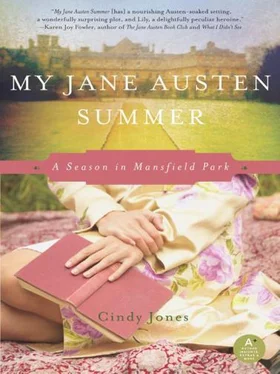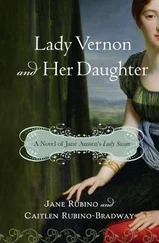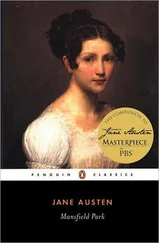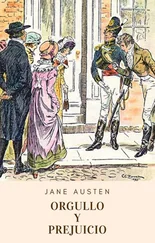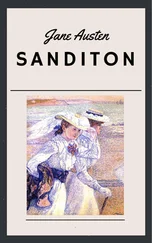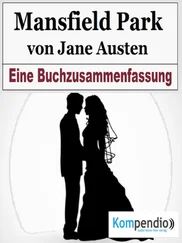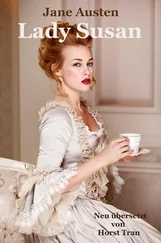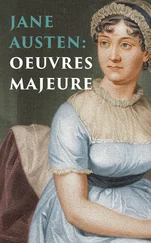Not until the train left the station did I open my hand and allow myself to experience the reunion with the cross I thought gone forever. I fastened the chain around my neck in a brief personal ceremony during which I vowed not to remove it again. Settling into my seat and closing my eyes, I recited from memory every line of Maria Bertram I could remember.
Noise increased as the audience accumulated in the ballroom awaiting the debut of my one-woman show, The Lost Letters of Jane Austen. Patrons crossed legs and chattered, fanning themselves with programs, making plans for later while I hovered in the butler's pantry. Breathing slowly and deeply to calm my nerves, I struggled to recall what impulse had compelled me to produce a one-woman show. I blamed Vera, encouraging my ideas, glad for the money from extra events, and, from the success of the tea-theatre, convinced that I could pull this off. But taking the stage alone to deliver my homemade script from memory seemed half-baked and lonely at the moment.
Sabrina passed me on her way out. I smiled at her; we were buddies now. The departures of Magda and Bets removed all obstacles between me and the role of Maria Bertram, which I performed now, in addition to my own productions. Sabrina jerked her head, indicating my bonnet. In my nervous state, I'd forgotten to remove it. I untied the bow under my chin and removed the hat, stuffing the ribbons inside the crown, placing it on the countertop.
When the time came I entered the ballroom and took my place, front and center, in the chair with the spindly gothic arches, the sort of chair that might moonlight in a prison, hired for especially high-profile electrical executions. Claire sat near the front, waiting, perhaps she suspected me of harboring clues in the Case of the Missing Letters, a mystery originating in her mind. Stephen Jervis operated the spotlight I'd rented.
I bowed my head and took a deep breath, noting, in my downward gaze, the tiny drawstring bag hanging from my wrist. Too late to do anything about that now, a hundred pairs of eyes fixed on me, actively waiting. I raised my face, looked straight into the audience, and exercising the full power of my diaphragm as taught by Sixby, said, "My Dear Cassandra."
The familiar salutation incited such a reaction from the audience of Jane Austen fans that I might have been mistaken for a rock star launching into a greatest hit. In the commotion, My Jane Austen appeared downstage, one eyebrow raised. I hoped she'd brought her sense of humor. Repeating the words, "My Dear Cassandra," I continued, "I'm writing to you from Oblivion where I've been detained nearly two hundred years by the public's persistent interest in a certain number of my letters which are now said to be lost." The audience responded to my lead as if I were the driver and they the car, savoring every lingering consonant and nuance of expression, holding their laughter for my pauses. "Thank you, Cassandra, for your diligent attention in censoring and burning so many of my letters. Imagine the consequences had you not made such good use of scissors and fireplace. But back to me.
"Perhaps," I said, "if the public knew the content of the Lost Letters, I might be released from their curious grip and allowed, finally, to proceed to my eternal rest. To that end, I will now work very hard to recall their content. It is my hope that in so doing, we may all move on." I glanced at Claire before closing my eyes.
"My Dear Mark Twain," I said, squinting with the effort of remembering. The audience seemed to understand where I was going. My Jane Austen stepped closer, cautiously amused. "If you so much as touch my shinbone, I'll use it to beat sense into your head. If you don't like Pride and Prejudice, stop reading it!"
The audience waited for more. My Jane Austen scribbled on her ivories as if she might add her own remarks.
"My Dear Tom Lefroy," I said. "It wasn't good for me, either. P.S. I meant what I said about your morning coat."
I lifted the water glass I'd placed near my chair, feeling the audience with me even as I sipped.
"My Dear Charlotte Bronte," I said. "Passions unknown to moi ?" I placed my hand near my heart, confidence surging, the audience eating from my hand. Maybe I could take this show on the road. "Have you seen Colin Firth in the wet-shirt version of Pride and Prejudice ?" Pause. "I didn't think so. Pity." I wished Willis were here to witness this. But I could not think about Willis while on stage. Whenever the deacon peeked around the corner of my subconscious, I tended to leave my body and climb stairs to the third floor where I entertained him with witty observations, causing Willis to be immediately overcome, etc. When I detected Willis creeping into my head I had to look the other way and focus on something scary like my half sister. "My Dear Kingsley Amis," I continued. "Sorry to miss dinner at your house but I have to wash my hair that night."
While addressing My Dear Andrew Davies, demanding information leading to the apprehension of the party or parties authorizing the Harlequinization of my novels, I felt My Jane Austen more intensely than ever. I corresponded briefly with My Dear Lionel Trilling to recommend counseling with an emphasis on sensitivity training. Taking big curves now, audience laughter cushioned the turns. As I roasted My Dear Seth Grahame-Smith, warning him not to travel alone in dark alleys, or for that matter, anyplace it might eventually get dark, like his personal bedroom, I felt as if I had become Jane Austen. She hovered so close to me, and I so close to her, that a sideways glance would not scare her away. I experienced such fusion with My Jane Austen, sensing the words she scribbled on her ivories as if she wrote in my mind. If I let go, her words would come out of my mouth. "My Dear To Whom It May Concern," I said. "Regarding the issue of failing to include slavery and war in my novels, what part of writing about the doings of a few country families do you not understand?" And then it happened; her words came from my mouth. I felt slightly buzzed, as if a dentist's anesthesia had numbed body and soul for my own protection since the words felt different, sharper.
"You are very kind to offer advice as to the sort of composition which I might have undertaken," I said. "I am fully sensible that a historic account of the Napoleonic Wars or Evils of Slavery might have been much more to the purpose of profit or popularity than pictures of domestic life in country villages as I deal in. But I could not sit down to write a serious history under any motive other than to save my life. And if it were indispensable for me to keep it up and never relax into laughing at myself and other people, I am sure I should be hung before finishing the first chapter." The audience sensed the change in the language, condescending. I wished to go back to my own script but I couldn't get there, speeding too fast to change direction without crashing, and I sensed more dangerous terrain ahead.
"My Dear Faculty of Literature Live," she spoke through me. The audience stopped breathing and raised their collective eyebrows. Some looked over at Nigel. "I must thank you dear teachers, for the very high praise you bestow on my novels. I think I may boast myself to be, with all possible vanity, the most unlearned and uninformed female who ever dared to be an authoress. While I am too vain to wish to convince you that you have praised my novels beyond their merit, I must warn that your intellectual endeavors on my behalf have been extolled so highly that future generations shall have the pleasure of being disappointed." Some audience members laughed but they weren't laughing with me anymore; we were out of sync. I'd been abducted, forced to perform. My Jane Austen was showing her true self. Prickly, she suffered no fools and wasn't cutting us any slack now. Her words felt mean, born in pain and subtly intended to inflict the same. I once imagined feeling the sharp end of her pen; now I felt it.
Читать дальше
